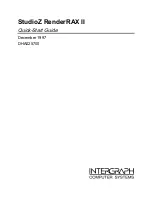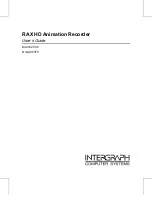
3-14
Computer Group Literature Center Web Site
BIOS
3
Hard Drive Setup Descriptions
The configuration options described below work identically for HARD
DRIVES 0 - 3.
If AUTO type is selected, the hard drive parameters are read during boot-
up and are configured automatically. The hard drive information, such as
manufacturer and model number, is displayed during POST. The CDROM
type will enable bootable CD-ROM support for an IDE CDROM drive
attached as a master or slave. An IDE CD-ROM can be made the boot
device through the BOOT OPTIONS screen. The ARMD type is selected
when an ATAPI Removable Media Device is present. This includes drives
for high capacity floppies that can be formatted as floppies or hard disks,
such as LS120, IOMega Zip, Fujitsu MO, and certain flash devices.
Device
Displays the type of IDE device currently installed. Type choices include Not
Installed, Hard Disk, ATAPI CDROM, and ARMD.
Vendor
Displays the manufacturer device identification information.
Size
Displays the storage capacity of the device.
LBA Mode
Displays support for Logical Block Accessing. LBA uses 28-bit addressing
of the hard disk instead of CHS (Cylinder/Head/Sector) addressing for
supporting drives up to 137GB.
Block Mode
Displays the maximum Block Mode transfer for the device.
PIO Mode
Displays the maximum PIO supported by the device.
Async DMA
Displays the highest support Asynchronous DMA Mode.
Ultra DMA
Displays the highest support Synchronous DMA Mode.
S.M.A.R.T.
Displays device support for Self-Monitoring Analysis and Reporting
Technology. This protocol allows detection of drive errors.
Type
Selects the type of IDE device. Type choices include Not Installed, Auto,
CDROM, and ARMD.
32BIT Data Transfer
Controls support for 32-Bit IDE transfers.
ARMD Emulation Type
Specifies the type of emulation used.


































